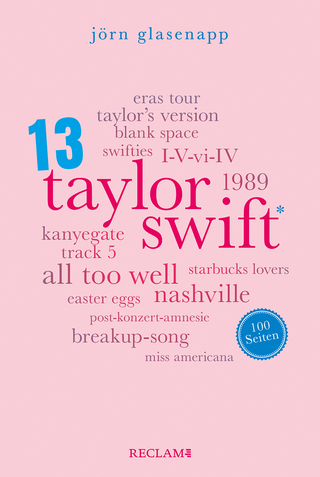
Children of the Ghetto
Black Music in Britain: Volume 2
2024
Peepal Tree Press Ltd (Verlag)
978-1-84523-564-2 (ISBN)
Peepal Tree Press Ltd (Verlag)
978-1-84523-564-2 (ISBN)
Volume 2 takes the story of Black Music Britain from the mid-1960s to the 1990s
Volume 2 of this outstanding history of Black British music covers the period from the late 1960s through to the end of the 1980s, explores the points of transition from the playing of Black musics in Britain that originated elsewhere to the emergence of an indigenously Black British music that responded to the situation of being born, or at least growing up in Britain, of the experience of the virulent racism in schools and in the wider society when, after Enoch Powell’s ‘rivers of blood’ speech, dockers marches and the regrouping of racist and fascist organisations, both white xenophobes and Black settlers realised the latter were here to stay. Le Gendre sees the emergence of the ‘indigenous’ in the blending of Caribbean and rock and pop in the music of the Peddlars, Eddie Grant and the Equals, Blue Mink, the jazz-blues rock fusion of CCS, the jazz, reggae funk of Cymande; the experimental music of mixed Black and white groups such as Rip, Rig and Panic and African Head Charge; the Britishing of West African music in Osibisa, the British reggae of Dennis Bovell, Matumbe, Misty in Roots, Aswad, Linton Kwesi Johnson, and Lovers Rock; and in jazz, Courtney Pine and the Jazz Warriors. There are discussions of the impact of gatekeepers such as the BBC on Black musics, the opportunities and limitations offered by clubs and other music venues, and the debates around the performance of Black musics by white British performers.
Volume 2 of this outstanding history of Black British music covers the period from the late 1960s through to the end of the 1980s, explores the points of transition from the playing of Black musics in Britain that originated elsewhere to the emergence of an indigenously Black British music that responded to the situation of being born, or at least growing up in Britain, of the experience of the virulent racism in schools and in the wider society when, after Enoch Powell’s ‘rivers of blood’ speech, dockers marches and the regrouping of racist and fascist organisations, both white xenophobes and Black settlers realised the latter were here to stay. Le Gendre sees the emergence of the ‘indigenous’ in the blending of Caribbean and rock and pop in the music of the Peddlars, Eddie Grant and the Equals, Blue Mink, the jazz-blues rock fusion of CCS, the jazz, reggae funk of Cymande; the experimental music of mixed Black and white groups such as Rip, Rig and Panic and African Head Charge; the Britishing of West African music in Osibisa, the British reggae of Dennis Bovell, Matumbe, Misty in Roots, Aswad, Linton Kwesi Johnson, and Lovers Rock; and in jazz, Courtney Pine and the Jazz Warriors. There are discussions of the impact of gatekeepers such as the BBC on Black musics, the opportunities and limitations offered by clubs and other music venues, and the debates around the performance of Black musics by white British performers.
Kevin Le Gendre is a journalist and broadcaster and writer with a special interest in black music. Deputy editor of Echoes, he contributes to a wide range of publications that include Jazzwise, MusicWeek, Vibrations and The Independent On Sunday and also appears as a commentator and critic on radio programmes such as BBC Radio 3's Jazz Line-Up and BBC Radio 4's Front Row.
| Erscheint lt. Verlag | 24.10.2024 |
|---|---|
| Verlagsort | Yorkshire |
| Sprache | englisch |
| Maße | 156 x 234 mm |
| Themenwelt | Kunst / Musik / Theater ► Musik ► Pop / Rock |
| Geisteswissenschaften ► Geschichte | |
| ISBN-10 | 1-84523-564-9 / 1845235649 |
| ISBN-13 | 978-1-84523-564-2 / 9781845235642 |
| Zustand | Neuware |
| Haben Sie eine Frage zum Produkt? |
Mehr entdecken
aus dem Bereich
aus dem Bereich


